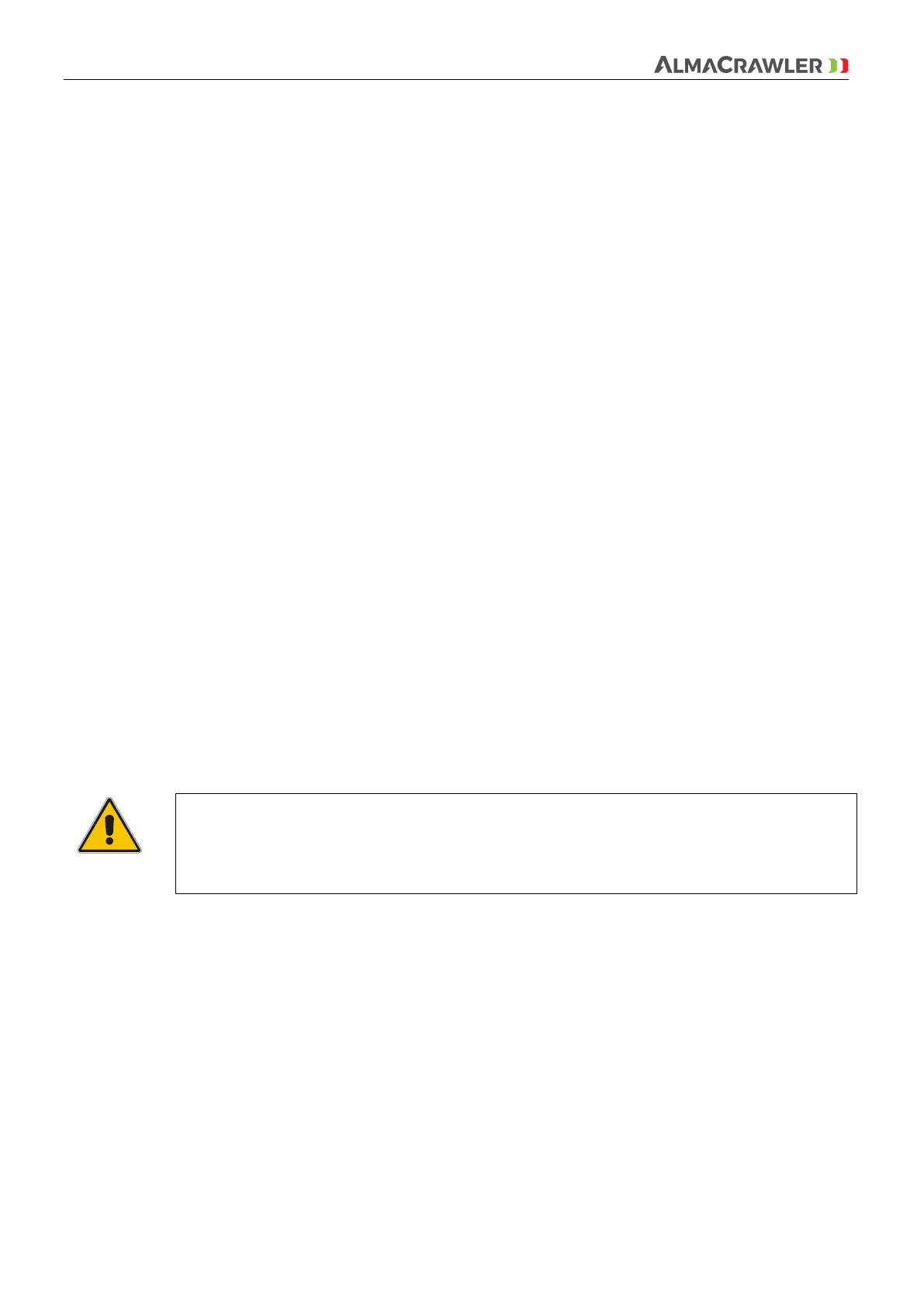PAGE157
9 DEMOLITION.
9.1 Machine life.
The machine has been designed for a duration of 10 years in normal working environments, considering
correct use and adequate maintenance.
9.2 Decommissioning and demolition.
Once the end of its technical and operational life has been reached, the machine must be subjected to a
detailed and complete check / overhaul by the manufacturer or by specialized and qualified technicians.
In the event that the verification is not considered passed, the equipment must be deactivated and then
demolished. The decommissioning must place the equipment in conditions that it can no longer be used
for the purposes for which it was designed and built at the time, and must also make it possible to recover
the raw materials that constitute it.
In case of demolition, comply with the regulations in force in the country where this operation is carried
out.
In Italy, demolition / disposal must be reported to the local ASL / USL or territorial ARPA.
The machine is mainly made up of easily recognizable metal parts (steel for the most part and aluminium
for the hydraulic blocks); it is, therefore, possible to say that the machine is 90% recyclable.
The demolition of the machine must be carried out by adopting safety measures that must take into
account the logistical, environmental and wear conditions of the machine itself.
In any case, follow the following general rules:
• Wear protective clothing and accessories (helmet, safety shoes, gloves, possibly goggles and
mask) approved in accordance with current accident prevention regulations;
• Disconnect the machine from any form of energy;
• Make the machine in-operative and impossible to use by breaking some vital parts of the
machine and transporting it to another place where it is certainly not available to anyone;
• Use suitable lifting means;
• Disassemble the machine in small, easily transportable groups;
• To dispose of the machine, separate non-polluting materials from polluting ones (insulators,
plastic materials, rubber, etc.).
The European regulations and those implemented by the member countries regarding
respect for the environment and waste disposal provide for heavy administrative and
criminal penalties in the event of inadequate compliance with them.
In case of demolition / disposal, therefore, strictly follow the rules imposed by the
regulations in force, especially for materials such as hydraulic oil and batteries.
9.3 Battery disposal.
Recycling of batteries is mandatory and depends on various national regulations (in Europe: European
Directive 2006/66 / EC). Find out about the legislation in your country.
• Cells and batteries, even if completely discharged, could still contain a considerable amount of
energy, therefore it is always necessary to protect the terminals to avoid short circuits;
• Dispose of in accordance with local laws and regulations (contact your nearest dealer);
• Keep the material to be disposed of as indicated in the specific Section of the Battery Safety Data
Sheet (request a copy);
• DO NOT discard into sewer system, on the ground or into waterways.

